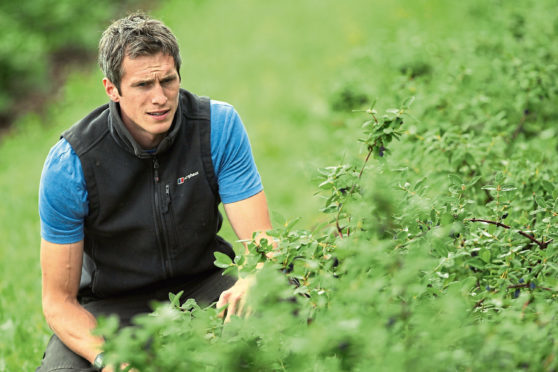The ambition to add a fifth berry crop to Scotland’s booming business in strawberries, raspberries, blueberries and blackberries has taken a major step forward with the creation of a new honeyberry knowledge transfer partnership between scientists and farmers.
Fruit grower Stewart Arbuckle, from Invergowrie, was behind the formation of a Scottish Honeyberry Cooperative to establish orchards which will produce fruit for freezing and honeyberry wine, and now the cooperative has formed a partnership with the James Hutton Institute (JHI) and its commercial arm, James Hutton Limited (JHL).
The aim is to identify the best varieties of honeyberry to grow while at the same time exploring other income streams such as agritourism and the provision of advisory services.
Although the crop is deemed suitable for Scottish conditions because it is winter hardy and has good pest and disease resistance, it has not been grown commercially here, so farmers are looking for more understanding of the agronomy required. The scientific research into that information will be led by James Hutton Limited fruit breeder Dr Dorota Jarret, who is one of only a few researchers in the UK to have trialled honeyberries.
“The challenge will be to prove production to be economically relevant, stable, reliable and of a superior quality and provenance to other honeyberry fruit that might influence future markets through import channels,” she said.
“Sharing existing knowledge and developing new expertise is essential, particularly considering variations in size, quality, environment pressures and growing capacities.”
Meanwhile Dundee University graduate Ruari MacLeod has been appointed knowledge transfer partnership associate.
He said: “My work so far has been focused mainly in academic research, whereas for this project we will apply our findings directly in a commercial setting.
“Our aim is to identify the best varieties of honeyberry and develop products around which we can build the Scottish honeyberry brand. While I’ll be relying on my scientific knowledge to help establish our understanding of the honeyberries as a crop, I’ll also be able to develop new skills in market research and product development.”
